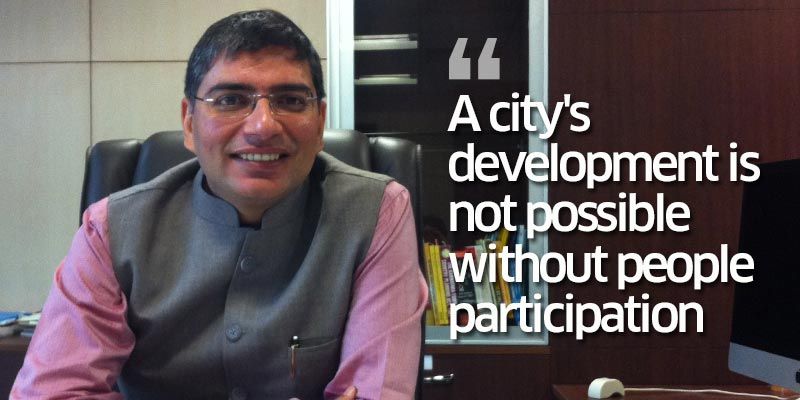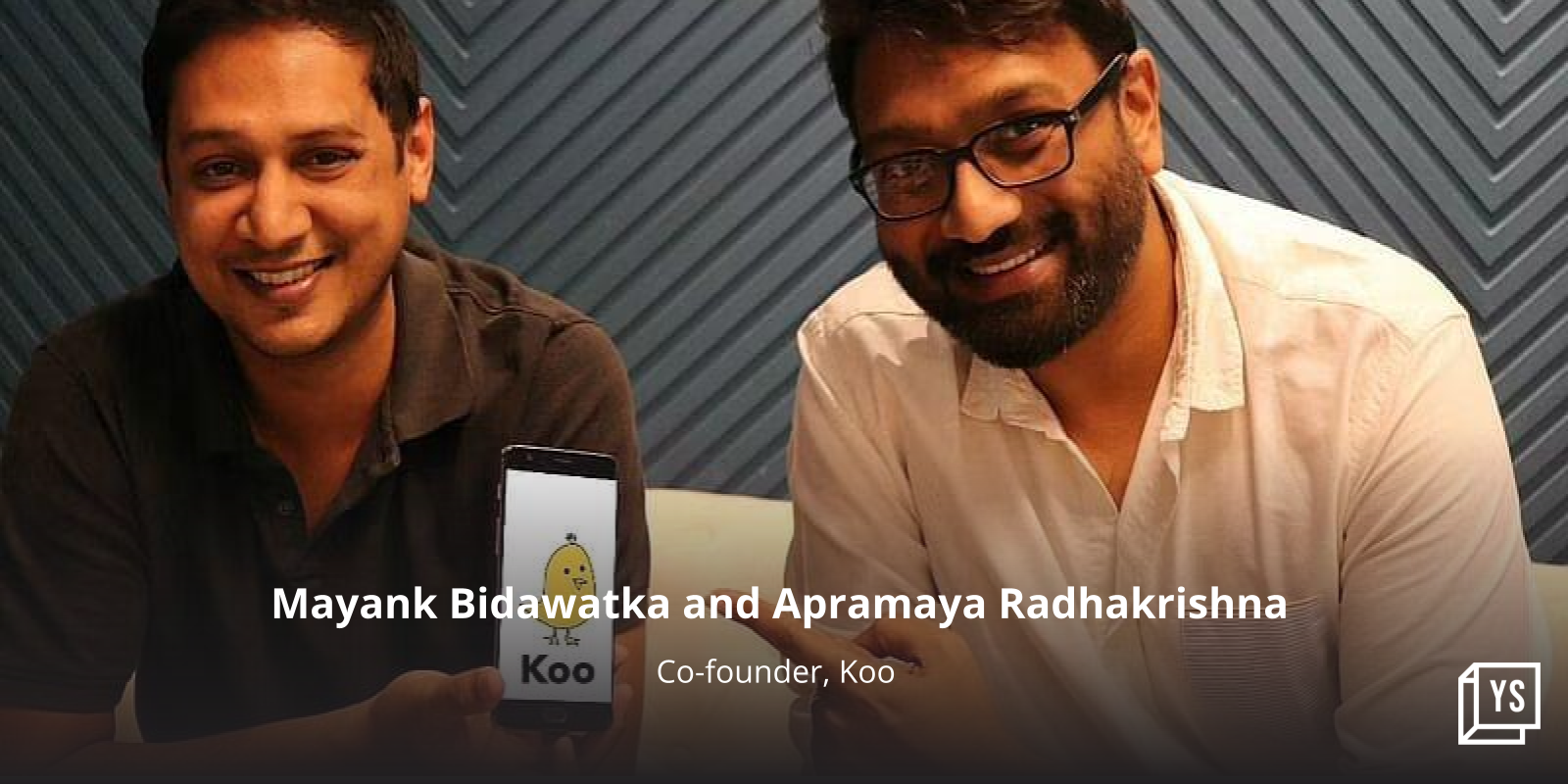A city needs people with entrepreneurial spirit to grow: Vikas Gupta, Gurgaon Commissioner
About 15 Jat men walk in and the Municipal Commissioner’s large office in Gurgaon suddenly feels small. Sitting behind his large desk, the dapper Commissioner in his Nehru jacket seems least intimidated by the group comprising burly young lads and tenacious old men. It is obvious they have a grievance and have come looking for a solution.

For the 38-year-old Vikas Gupta, the Commissioner of Municipal Corporation of Gurgaon (MCG), such encounters are of a daily kind. Since he was appointed to the highest position in the city’s apex civic body last year, Vikas Gupta has had his task cut out for him.
The rampant urbanisation of Gurgaon has left in its wake a distressed population battling inadequate infrastructure. And Vikas Gupta, a 2001-batch IAS officer, with his vast experience in managing urban development, seems like the right candidate to tackle the urban mess Gurgaon finds itself in at present.
Before taking over as the head of MCG, Vikas Gupta was the Director and Secretary of Urban Local Bodies and Mission Director of State Urban Livelihood Mission and State Urban Development Authority, Government of Haryana. He was also the Commissioner of Rohtak Municipal Corporation and the Deputy Commissioner of the district.
Brokering peace
Sitting in his air-conditioned office and listening to the Jat villagers complain about a fellow villager, Vikas Gupta makes mental notes to send away both parties happy.
The Jat villagers had presented an application for the removal of a fellow villager’s waste segregation unit and a home he runs for the destitute and mentally challenged. The young in the group seemed agitated as the ‘culprit’ narrated his side of the story. “Where will I go if I am evicted?” he asked the Commissioner. “I will have to be given an equivalent portion of land to take my inmates with me,” he added.
The complaining villagers were equally adamant that they wanted him evicted as some of his mentally-challenged inmates had earlier been found roaming the village naked. The whole village was riled up about this breach, the Commissioner later tells me while giving a context to the dispute.
After consulting his secretary, he tells the man he can move his unit and inmates to an alternative plot of land, and gives them all a month’s time to resolve the issue.
Early days
Born and brought up in Jaipur, Gupta graduated from the Regional Engineering College, now renamed the Malviya National Institute of Technology, Jaipur, in electronics and communications. He appeared for the IAS on a whim. “I was a very average student. Always in the first 10, never in the first five,” he tells me. “If you ask me why I choose to be an engineer, I really do not know the answer,” he says, adding after a pause, “I guess I was very good at mathematics and science, and it seemed like a natural choice. But as to the question of why I joined the IAS, I guess I was always a keen observer of political developments, having witnessed the Mandal-Mandir agitations from close quarters when I was in class nine.”
Initially, Gupta thought he would study business management after graduating from engineering college, and then look for a corporate job like so many of his contemporaries.
However, in 1996, he heard that one of his seniors had got through to the IAS. “Like everyone else, I was also thinking of either taking up a corporate job or maybe appearing for the civil services. So, when I learnt that one of my seniors had made it, I decided to try my luck as well,” he says.
It took him three straight attempts to get through. “In my first attempt, I got the Railways but did not want to take up that stream. By the third year, I decided not only to repeat the IAS exams but also gave the CAT.” That year, he cleared all his exams.
Recalling an incident that he feels, in retrospect, changed his attitude to life, he says, “In my second year of engineering, I did not put in a 100 percent effort and ranked 23 out of 65 students. I vividly remember that I went blank during the micro-electronics viva test. I did not know anything. It was then I realised that without hard work nothing can be achieved.” This, he believes, has been the leitmotif of his life so far.
People participation
At the YS Gurgaon Story event, a community-oriented summit, in November, he stressed that “The role of civic agencies like MCG in the exponential trajectory of the city has become all the more crucial and defining. I feel one of the pre-requisites of any city to evolve is active citizen participation. An entrepreneurial spirit is a must.”
Gupta interacted with around 10 startups at the event, taking a keen interest in their solutions, some of which are related to urban traffic and energy issues.
The challenges of administrating a place like Gurgaon are many. There’s a constant conflict between the rural and urban populations, the old way of life and the new one, and it takes a sharp mind to find solutions that work for everyone.
For now, Vikas Gupta seems to be the man with all the answers.











